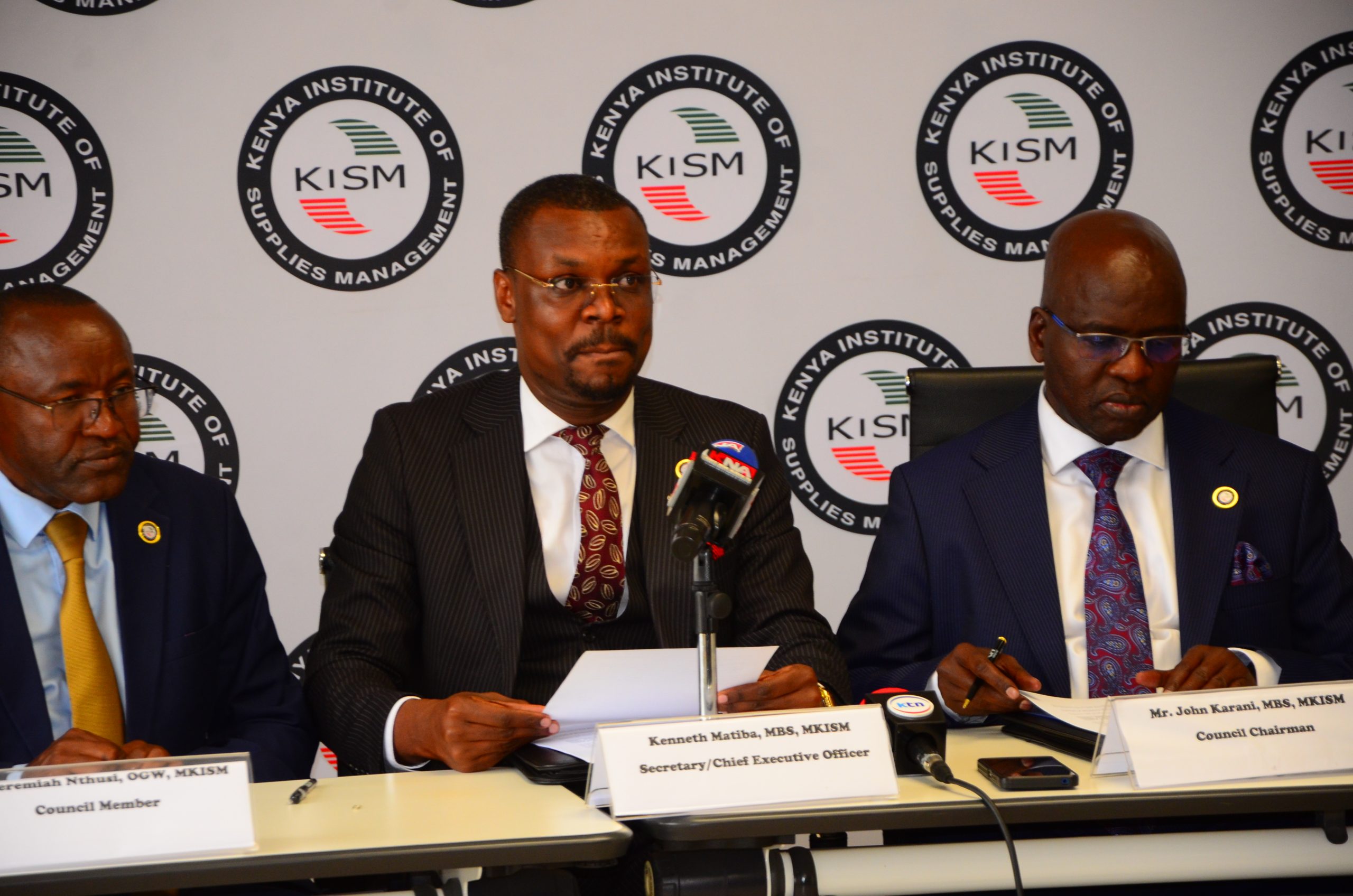
By Njeri Irungu
Nairobi, September 3, 2025
The Kenya Institute of Supplies Management (KISM) has reaffirmed its support for the rollout of the Electronic Government Procurement System (EGPS), hailing it as a transformative step that will strengthen transparency, efficiency, and accountability in Kenya’s public procurement.
Speaking during a press briefing at KISM Towers in Nairobi, the Institute’s Chairman, Mr. John Karani, said digitizing procurement processes is a “crucial step towards modernizing the sector and closing loopholes that have long undermined accountability.”
Karani stressed that the more than 28,000 supply chain professionals registered by the Institute are at the heart of the transition. “Our professionals are the critical pulse required for seamless adoption of the system, and we commend their resilience and commitment to public service,” he said.
KISM Chief Executive Officer, Mr. Kenneth Matiba, detailed the measures already taken to prepare for the rollout. “Following the government directive on this matter, the Institute has been able to undertake major interventions in the last two months,” he said. “We have trained 1,317 supply chain management professionals across the country, with another 225 currently undergoing training this week. These programs are equipping practitioners with the skills needed to overcome technical challenges and to navigate the platform effectively.”
He added that 30 supply chain professionals are also being trained at the Kenya School of Government to serve as trainers of trainers (ToTs), who will graduate at the end of this week. “This will help us meet the growing demand for capacity building from public institutions,” Matiba noted.
According to the CEO, the e-GP training is intensive and delivered in two phases of five days each, covering supplier and procuring entity registration, procurement planning, e-requisition, tender preparation, bid security management, evaluation, awards, and e-contract management.
On compliance, KISM has recommended that only licensed and registered supply chain professionals be allowed to operate the system, in line with the Supplies Practitioners Management Act, 2007, and a 2023 government circular requiring accounting officers to verify practitioners’ membership and licenses.
“As an Institute, we are calling upon all supply chain professionals to uphold the highest standards of good governance by actively participating in capacity-building programs, supporting their institutions in registering on the platform, and creating awareness within their organizations to ensure seamless adoption,” Matiba said. He encouraged practitioners to report training gaps, share feedback with the Institute, and adhere to KISM’s code of ethics during the transition.
Matiba also commended accounting officers for supporting the rollout by releasing staff for training and providing resources, noting that more than 200 officers are currently in Mombasa undergoing sessions.
Both leaders pointed to international examples of successful adoption of electronic procurement, citing Rwanda’s Umucyo, Ghana’s GHANEPS, India’s GeM, Singapore’s GeBIZ, South Korea’s KONEPS, and Ukraine’s ProZorro, which has saved billions through public oversight. “Studies by the World Bank show governments that implemented end-to-end e-GP realized cost savings of between 10 and 15 percent in their first year. Portugal, for instance, recorded a 20 percent price reduction on procurement contracts,” Marina said.
Karani concluded by reaffirming KISM’s commitment to collaboration: “As supply chain professionals, we are the greatest beneficiaries of an open and transparent procurement system. Together with government and our partners, we will ensure Kenya realizes the full potential of a digitized procurement landscape.”
The rollout also aligns with the government’s target to make 80 percent of public services available online, positioning Kenya among countries embracing technology to transform governance.







